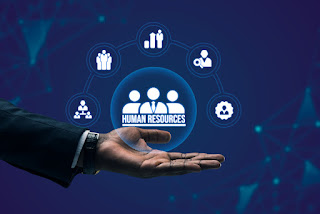The Need of Integrating HRMS And Payroll Software
In today's fast-paced business environment, companies are continually seeking ways to streamline their processes and improve efficiency. One area where integration can lead to significant benefits is the alignment of human resource management systems (HRMS) and payroll software. By integrating these two essential systems, organizations can enhance their HR and payroll processes, leading to increased accuracy, improved productivity, and better employee management. In this blog post, we will explore the perks of integrating HR and payroll software, focusing on the advantages of incorporating attendance software and an automated payroll system.
Streamlined Data Management:
One of the
primary advantages of integrating HRMS and payroll software is the seamless flow of data
between the two systems. With an integrated solution, employee data such as
personal information, attendance records, and leaves can be automatically
synchronized, eliminating the need for manual data entry and reducing the risk
of errors. By eliminating duplicate data entry and minimizing paperwork, HR and
payroll teams can save valuable time and effort.
Enhanced Attendance Tracking:
Attendance
software plays a crucial role in tracking employee work hours, leaves, and
absences. By integrating attendance software with HRMS and payroll software,
organizations can effortlessly capture attendance data and automate related
processes. This integration allows for accurate tracking of employee
attendance, reduces the risk of time theft or buddy punching, and enables
real-time visibility into attendance trends. Moreover, with an integrated
system, attendance data can be directly utilized for payroll processing,
ensuring accurate and timely salary calculations.
Automated Payroll Processing:
The
integration of HRMS and payroll software enables organizations to establish an
automated payroll system. Once attendance data is synchronized with the payroll
software, calculations for salaries, taxes, deductions, and benefits become
automated, significantly reducing the time and effort required for manual
calculations. This automation eliminates the possibility of errors and ensures
accurate and timely payroll processing. Additionally, an automated payroll
system can generate payslips, tax forms, and other necessary documents
efficiently, making the entire payroll process more streamlined and error-free.
Improved Compliance and Reporting:
Integrating
HRMS and payroll software offers enhanced compliance with labor laws and
regulations. An integrated system can help automate the calculation and
deduction of taxes, social security contributions, and other statutory requirements,
ensuring compliance with relevant laws. Furthermore, integrated systems provide
comprehensive reporting capabilities, allowing HR and payroll teams to generate
various reports related to employee attendance, leaves, overtime, and more.
These reports not only aid in compliance but also provide valuable insights for
decision-making and resource planning.
Simplified Employee Self-Service:
Integrating
HRMS and payroll software often includes a self-service portal for employees.
This portal empowers employees to access and manage their personal information,
view payslips, request leaves, and update their details independently. By
offering employee self-service capabilities, organizations can reduce the
administrative burden on HR teams, improve employee satisfaction, and foster a
culture of transparency and empowerment.
Factors to consider when choosing an
integrated HRMS and Payroll Software solution
When
selecting an integrated HR and payroll software solution, several factors need to
be carefully considered.
●
Firstly,
compatibility and integration capabilities are crucial. The software should
seamlessly integrate with existing systems and databases to avoid data
discrepancies and enhance efficiency.
●
Secondly,
scalability and customization options are vital to accommodate the
organization's present and future needs. The solution should be flexible enough
to adapt to evolving business requirements and allow for customization based on
specific HR and payroll processes.
●
Thirdly,
data security and compliance should be given utmost importance. The software
should have robust security measures in place to protect sensitive employee
information and ensure compliance with relevant data privacy regulations.
●
Additionally,
user-friendliness and ease of navigation are key factors for user adoption and
productivity. Intuitive interfaces, comprehensive reporting features, and
self-service capabilities can enhance the overall user experience.
●
Lastly,
the vendor's reputation, customer support, and pricing models should be carefully
evaluated to ensure a reliable and cost-effective long-term partnership.
Taking these
factors into account can help organizations make an informed decision when
selecting an integrated HRMS and Payroll software solution.
Conclusion
Integrating
HRMS and payroll software, along with attendance software and an automated
payroll system, brings a multitude of advantages to organizations. The seamless
flow of data, enhanced attendance tracking, automated payroll processing,
improved compliance, and simplified employee self-service contribute to
increased accuracy, productivity, and efficiency. By investing in an integrated
HR and payroll software solution like that of OpportuneHR, businesses can streamline their HR and
payroll processes, allowing HR teams to focus on strategic initiatives and
ultimately driving overall organizational success.
From core HR
to analytics and AI applications, all of OpportuneHR’s features are designed to
address real life HR scenarios. Their micro-feature layers add depth and
flexibility to automation. That's why OpportuneHR captures more and more vital
data-points. It results in an unmatched user and management experience, higher
productivity, and decision friendly MIS reports. So, why compromise and accept
incomplete automation solutions? Bring out your unique HR scenarios with OpportuneHR.




Comments
Post a Comment